Trump’s business record isn’t just real estate towers and licensing deals—it’s also littered with abandoned ventures that didn’t deliver on their promises. While some collapsed under market forces, others stumbled from mismanagement, bad timing, or branding that simply didn’t hold up. These failures are key to understanding how the Trump brand has operated over time.
Trump University
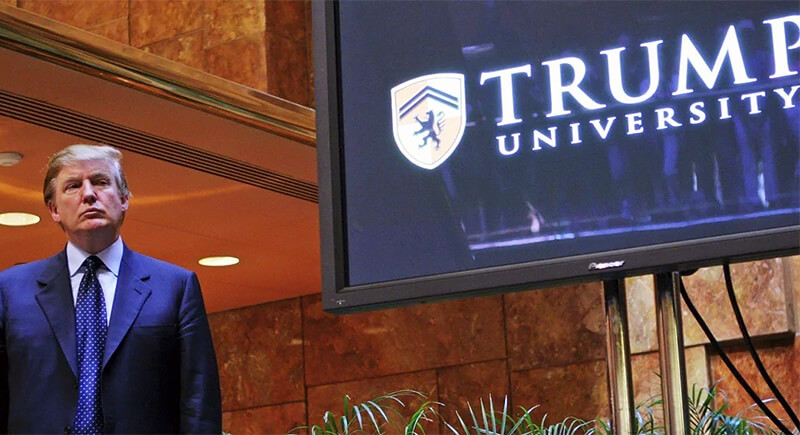
Credit: Reddit
It was marketed as an insider education in real estate, but Trump University operated without accreditation and was staffed by instructors with little to no industry success. Legal scrutiny followed quickly, with lawsuits alleging fraud and deceptive practices. By 2017, the enterprise ended in a $25 million settlement and closed the chapter on a venture that left thousands disillusioned.
Trump Casinos
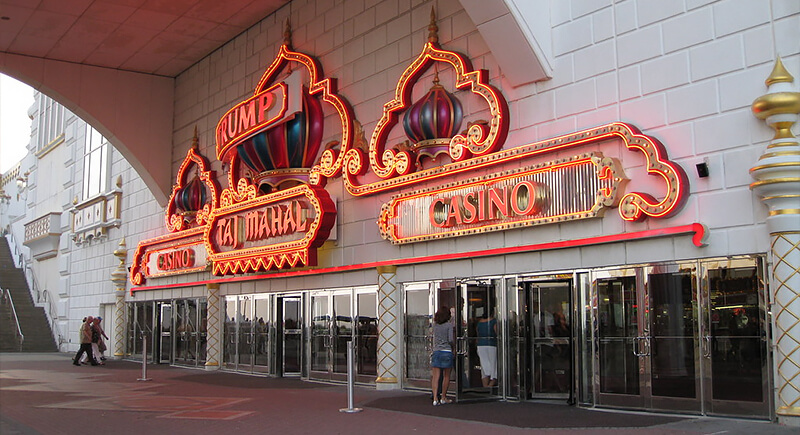
Credit: flickr
From the Trump Taj Mahal to Trump Plaza, the current president’s casinos promised extravagance but hemorrhaged money. The Taj Mahal alone filed for bankruptcy multiple times before closing in 2016. Trump Castle and Trump World’s Fair didn’t fare much better. These ventures highlight a pattern: high-profile launches, overwhelming debt, and eventual fire-sale exits under new names.
Trump Mortgage
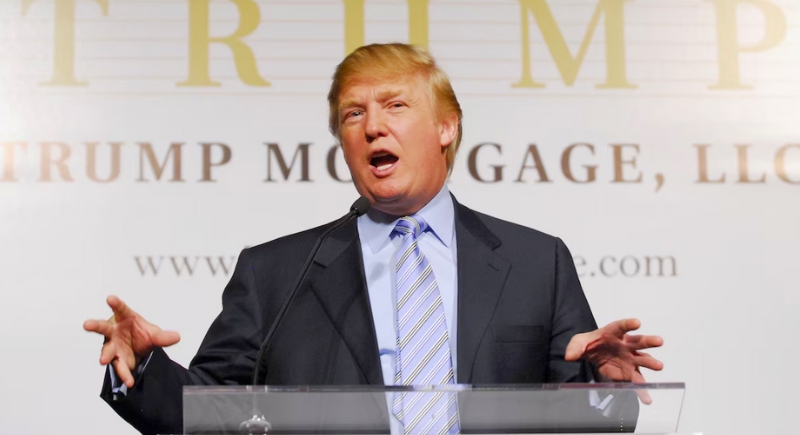
Credit: X
Launched in 2006 as the housing market teetered on collapse, Trump Mortgage failed to secure credibility or sustainable revenue. Its CEO exaggerated his resume, and the company was derailed by the 2008 mortgage crisis. Less than 18 months after its debut, it folded—another example of bold branding colliding with an unforgiving market.
Truth Social

Credit: flickr
After being created in 2022 to rival major platforms, Truth Social billed itself as a censorship-free alternative. Despite initial user interest, the platform struggled with software issues, limited ad revenue, and sluggish growth. By 2025, it remained unprofitable, with Trump Media & Technology Group posting substantial losses and facing continued questions about its long-term viability.
Trump Steaks
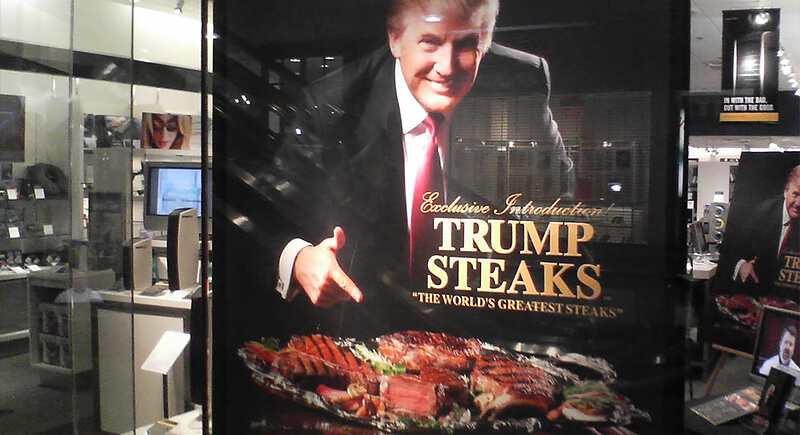
Credit: flickr
Trump Steaks entered the luxury food market in 2007 with premium pricing and promotional fanfare. But sold through The Sharper Image and QVC—unconventional outlets for meat—the concept never caught on. After barely two months, the line was pulled. The retailer’s CEO later confirmed they had “literally sold almost no steaks” despite the publicity push.
The Trump Network
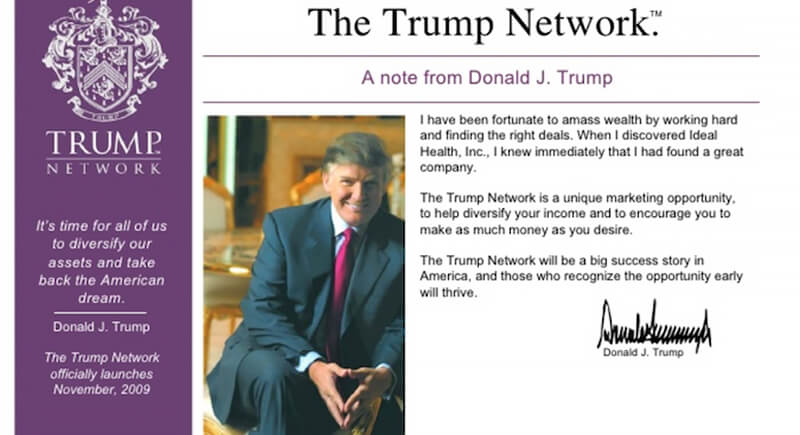
Credit: Republic Report
In 2009, Trump backed a multi-level marketing company selling wellness supplements and the PrivaTest—an at-home urine test to “personalize” vitamin plans. Scientific credibility was thin, and critics noted the MLM structure resembled other exploitative schemes. The business had quietly shut down in 2012 and left many distributors with sunk costs and unsellable inventory.
Trump Vodka
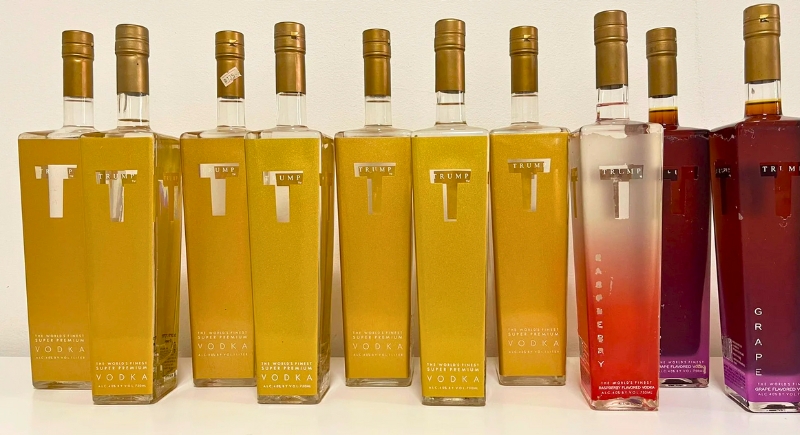
Credit Reddit
Trump Vodka, with a gold-accented bottle and a slogan promising aspirational luxury, was launched in 2006 in an attempt to compete with brands like Grey Goose. It failed to capture a loyal base, and distribution lagged. Both the vodka and its Dutch distillery were out of business by 2011. In retrospect, the drink never matched its branding hype.
Trump Shuttle
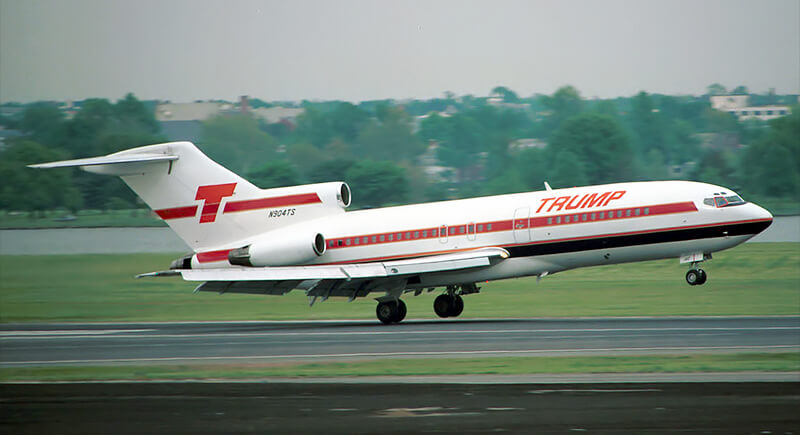
Credit: flickr
In 1989, Trump purchased Eastern Air Lines’ shuttle service and rebranded it as a high-end travel experience. The planes had plush interiors and gold accents, but the business was quickly weighed down by debt, labor disputes, and fuel costs. The operation was gone only three years later and absorbed by competitors after never turning a profit.
GoTrump.com
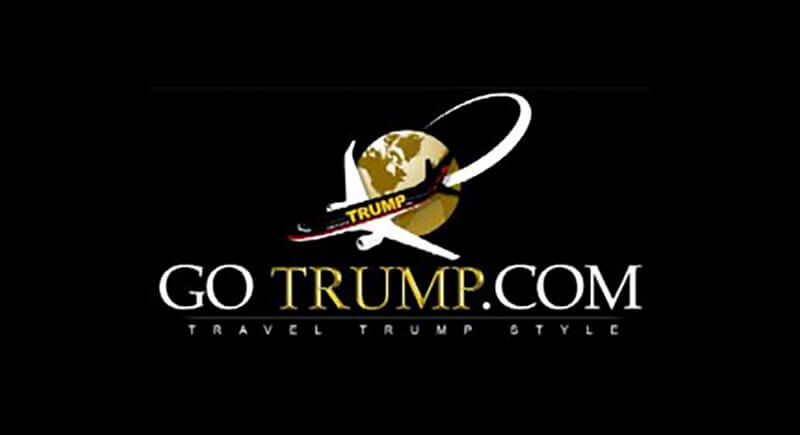
Credit: Wikimedia Commons
GoTrump.com–launched in 2006–attempted to carve out space in the crowded online travel market with Trump's personal endorsements and luxury branding. Despite partnerships with major booking engines, the site failed to gain traction and quietly shut down a year later.
Trump Ice
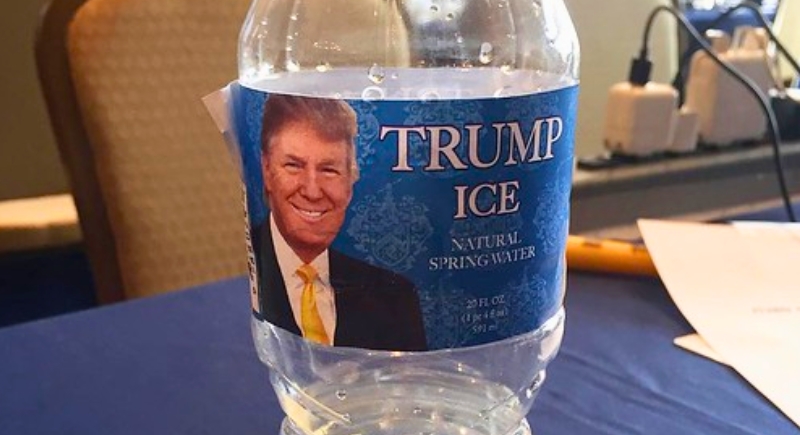
Credit: flickr
Trump Ice was marketed in the early 2000s as luxury bottled water sourced from natural springs and sold under a sleek label. Production faded out by 2010, though the branding reappeared briefly during a 2023 political event. Despite its sporadic returns, the product failed to establish a place in an already saturated market.
Trump Home
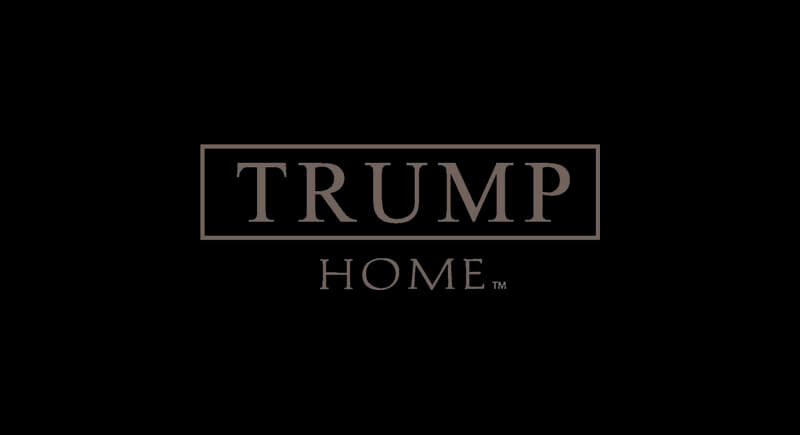
Credit: Wikimedia Commons
Trump Home featured luxury furniture designed to reflect the “Trump lifestyle” in 2007. While the collection had early retail presence, declining sales and the eventual severing of partnerships with stores like Macy’s led to its downfall. The line was gradually phased out as demand faded and retailer relationships deteriorated.
Trump Fragrances
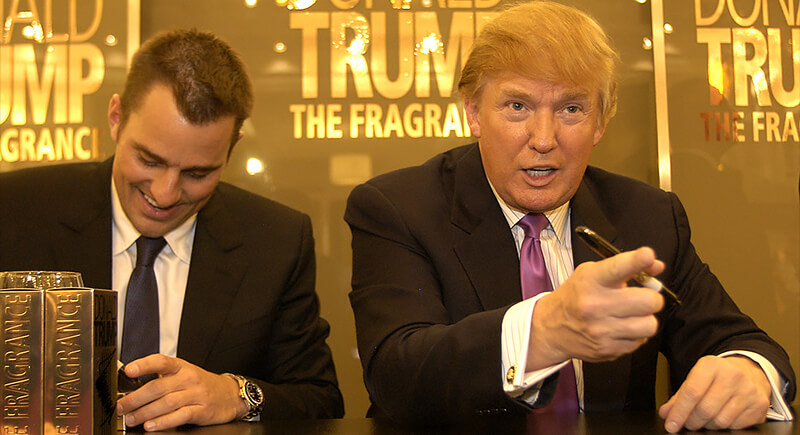
Credit: flickr
With names like “Success by Trump” and “Empire,” these fragrances tried to bottle prestige. They were sold at major retailers and initially drew some attention, but competition from established brands and political backlash eventually took their toll. As controversy around Trump grew, retailers dropped the line.
Trump: The Game
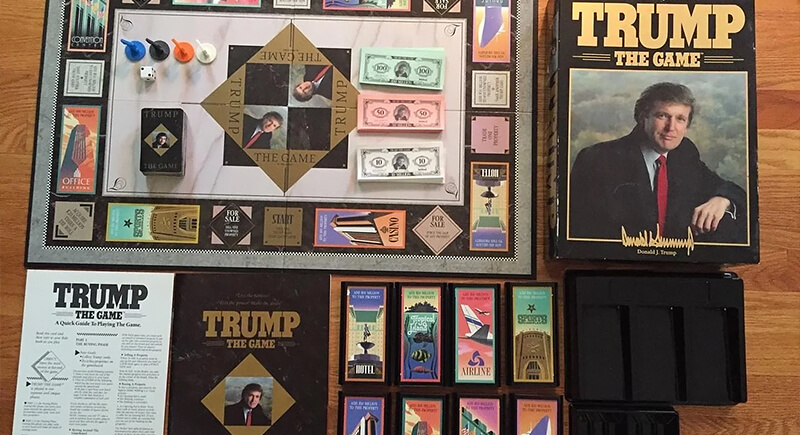
Credit: Reddit
Released in 1989, this Monopoly-style game let players mimic Trump’s real estate deal-making. It underperformed on shelves and was quickly discontinued. A brief revival in 2004—riding the popularity of “The Apprentice”—did little to improve its legacy. Both editions ultimately failed to generate meaningful sales or cultural relevance in the crowded game market.
Trump Communications (Trumpet)
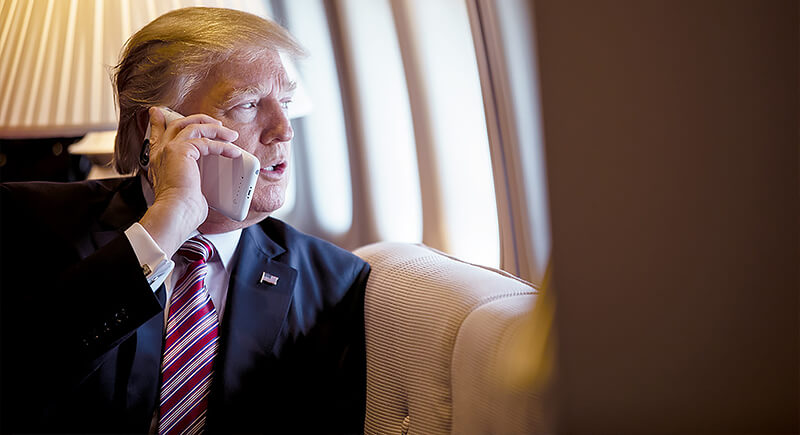
Credit: flickr
Trump once attempted to break into telecommunications with a company called Trumpet that planned to offer services like long-distance calling. The business stalled before it could officially launch, and it was unable to secure the infrastructure or market share required to compete. It folded without a single customer served—one of the least visible but clearest failures in the portfolio.
Trump Magazine
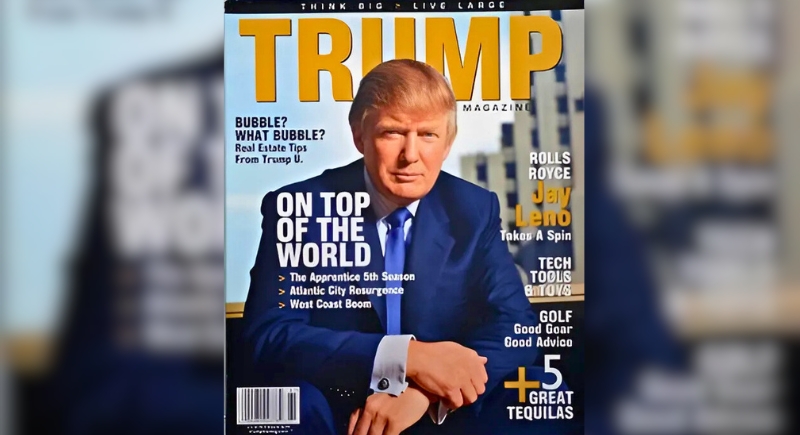
Credit: Wikimedia Commons
Trump Magazine was Donald Trump's foray into the glossy world of lifestyle publishing. Launched in 1997 as Trump Style, it was initially a freebie for VIP guests at Trump properties. It then morphed into Trump World and eventually Trump Magazine. By 2009, though, amid the Great Recession and dwindling ad revenues, the publication ceased operations with unpaid bills and disillusioned staff.
Trump Institute
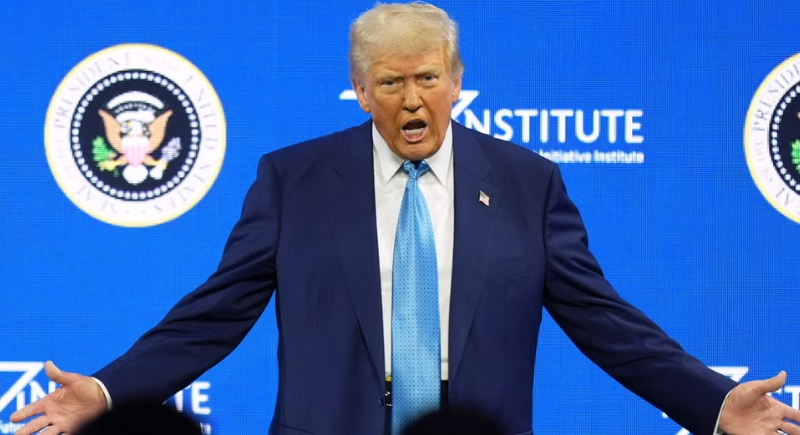
Credit: Facebook
The Trump Institute was a separate venture from Trump University but shares a similar mission: to teach the "Trump way" of real estate success. Operating between 2005 and 2009, it offered seminars and workshops, often featuring promotional videos of Trump himself. However, controversies plagued the institute, including allegations of plagiarized materials, misleading marketing practices, and prioritizing profit over genuine education.
